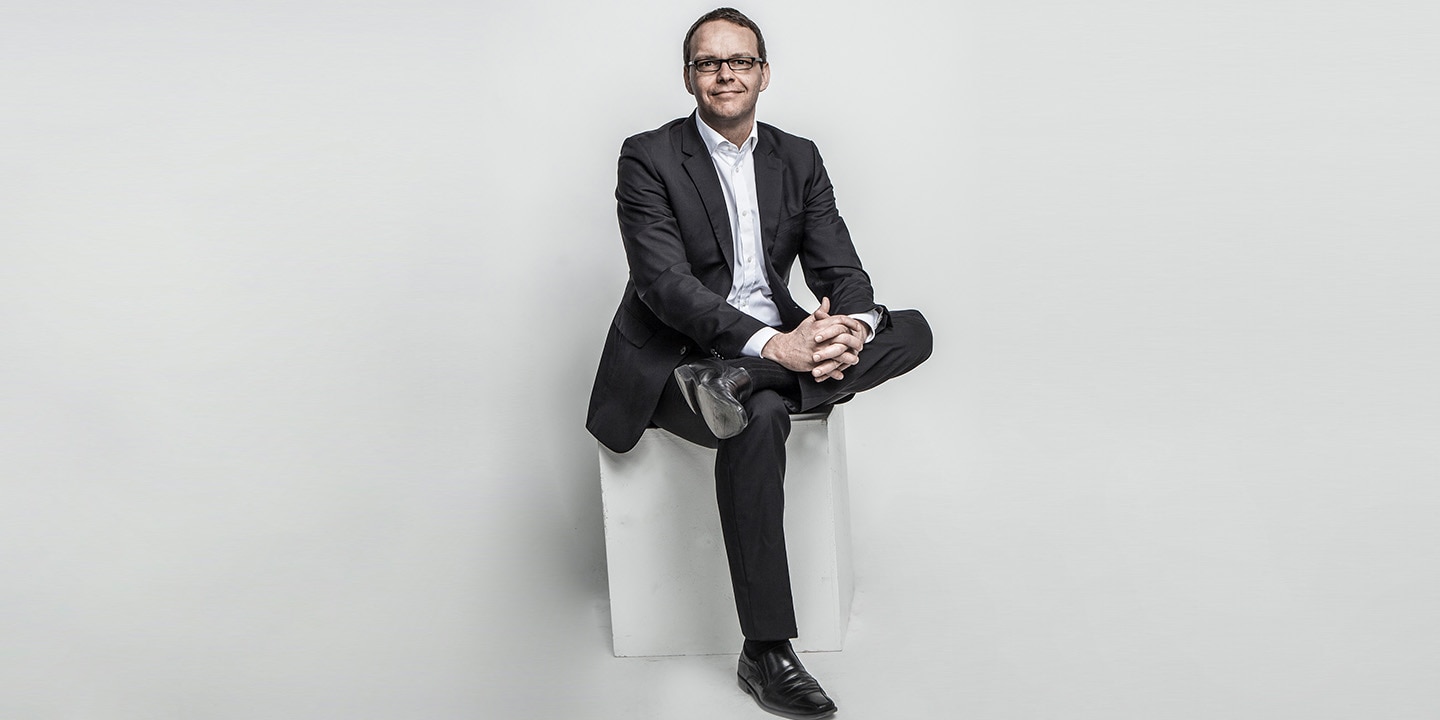What is resilience? How can we develop it?
Denis Mourlane is one of the most recognised experts in Germany and he trains and coaches people and organisations on how to develop resilience. In the past, he has worked with our employees and given the unexpected and unique situation caused by the coronavirus, we wanted to know what he could share with us at a time when this competence is particularly useful. What is resilience? How can we develop it? What good practices can we adopt? He answered us in a 3-minute interview and summarised his three most important tips. Discover them in the video afterwards.
What exactly is resilience?
By resilience we mean first and foremost the ability people have to cope with setbacks in life. Beyond that, and this is especially interesting at the moment, it is also the ability to deal with situations of uncertainty. People with a pronounced resilience succeed in such situations by remaining realistically optimistic, calm and goal-oriented. I think Nelson Mandela is a good example. During his 27 years of captivity on Robben Island, he was of course, at times, desperate. But he always found his way back to an optimistic attitude and never lost sight of his goals. That's what you have to achieve in a situation like this.
Can one develop or strengthen resilience and how?
Resilience is a kind of psychological immune system that you can strengthen, just like your physical immune system. If you pay attention to your basic physiological needs in the physical area, such as hydration, a balanced diet and exercise, you do your physical immune system a lot of good. You strengthen it. Similarly, you can strengthen your psychological immune system and your resilience, by paying attention to your basic psychological needs. These psychological needs include the need for attachment, for orientation and control, for self-esteem, for pleasure, i.e. for positive emotions – all of which are neuroscientifically well proven. A person who has strong ties to other people, who knows what he wants and moves towards it, who cultivates his self-esteem, who experiences a lot of joy and for whom his own life makes sense, is not so easily thrown off track. This is one of the reasons why Mandela survived.
Why do you need resilience? Who needs resilience?
If you take the definition of resilience that I gave you at the beginning, it quickly becomes clear that every person needs resilience. Why? Quite simply: because, as much as I wish there is, of course, no life without major setbacks or situations of uncertainty. Fortunately, with regard to the psychological immune system, even without special resilience training, the current Homo Sapiens seems to be well-positioned to deal with these adversities of life. Just as we are already born with a very powerful physical immune system, we already have resilience. Ideally, this is then further improved by our environment. This happens, for example, when parents set an example of an optimistic basic attitude, remaining calm in stressful situations or let children solve their problems themselves. If all this happens, and a few more things, children also develop into resilient adults.
How do you recognise resilient persons / systems?
You can recognise a resilient system by how well it can deal with disturbances. It is a system that works successfully in "normal times" and is able to return to its original successful state after a disorder - because it has used the crisis as an opportunity. This view can be extended to people, companies, societies and probably the whole world. By the way, it does not mean, that I have to create everything by myself. Being resilient also means seeking support at the right moment. Some fundamentally very resilient people still fail because they find it difficult to accept help.
What are the most important tips for strengthening resilience, especially in the context of the current situation? For each tip, can you give some examples of how it can be implemented?
There are so many helpful tips that you could write a whole book about them (which I did...). So, let me pick out one very important one. Probably the most important strategy of all is to focus on what you can influence. This can be related to the crisis, for example, when I keep a safe distance to people, wear a mouth guard or help those in need, but it can also be completely independent of that. Also, working at home where I do my professional duties, mowing the lawn, misting out the basement, doing sports and much, much more, are things I can influence. If I do that, I see myself as being self-effective. That's what we psychologists call it. If I don't do that and instead only deal with what worries me, for example by constantly watching the news, I put myself in a victim role. This is because mentally I am almost only concerned with things that I cannot influence at all. What can I change about the death figures in the USA? Can I accelerate the development of a vaccine? In the long run, that robs everyone of their energy. In prison, Mandela tended his small vegetable garden, looked after his fellow inmates, continued his studies, wrote political writings, tried to convince the prison guards of his ideas, and in this way, he retained his self-efficacy. But he also could have spent years grieving over the injustice that undoubtedly happened to him. But then he would undoubtedly have died from it.
What is resilience?
04:23
To go deeper into the subject:
Emotional Leading, Denis Mourlane, 2015 (in German)
The resilience factor, 7 Keys to Finding Your Inner Strength and Overcoming Life's Hurdles, 2003, Karen Reivich, Andrew Shatté
Want to stay up-to-date?
Subscribe to our newsletter and receive the news you would like to receive.

